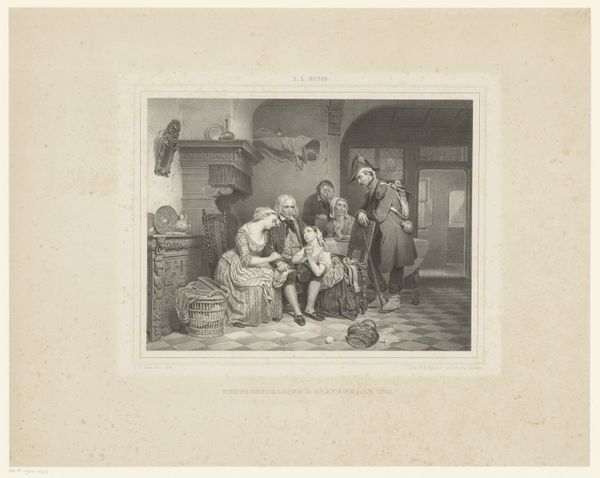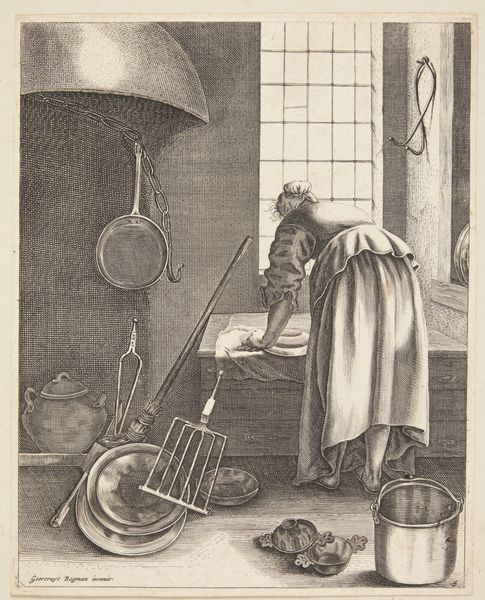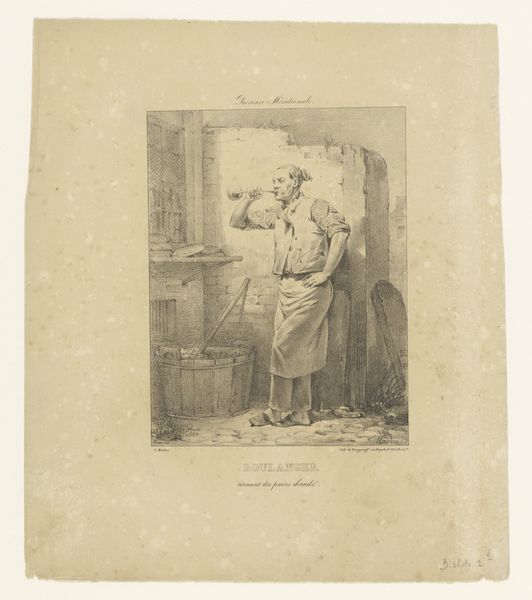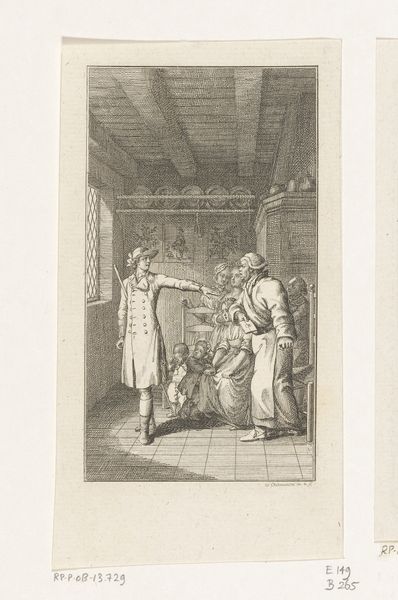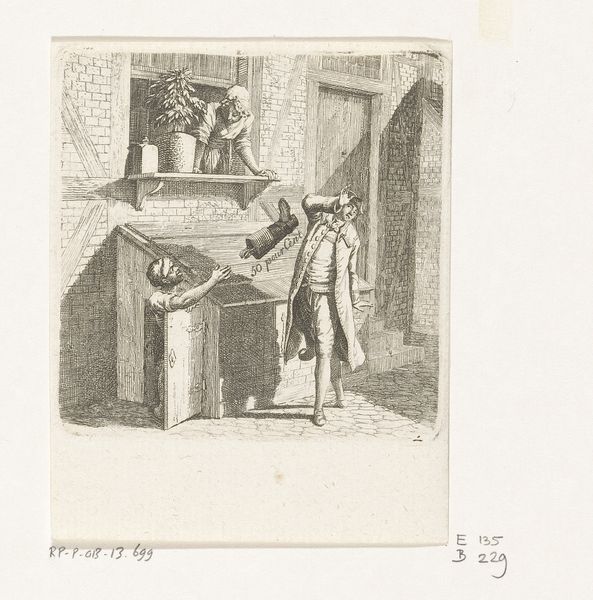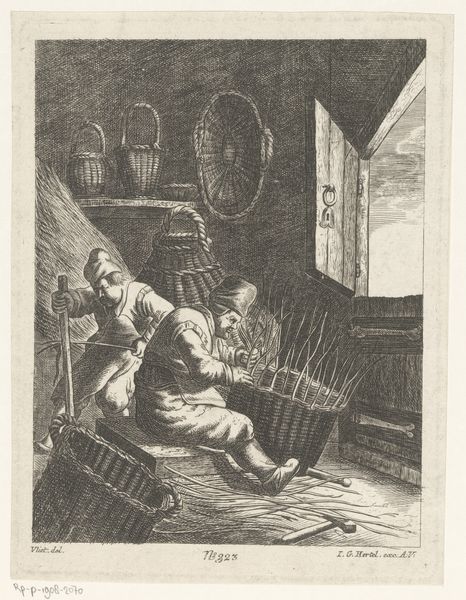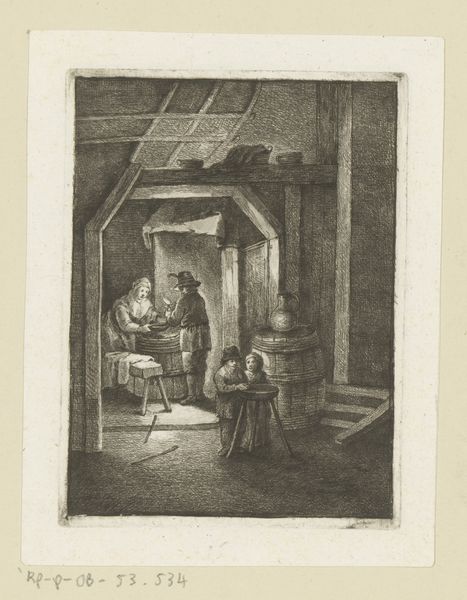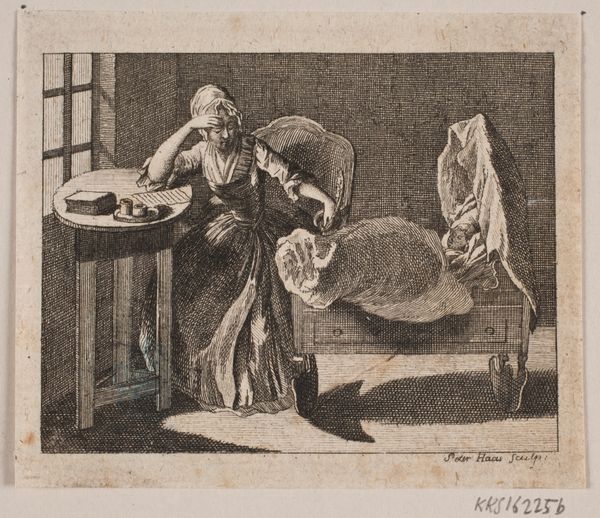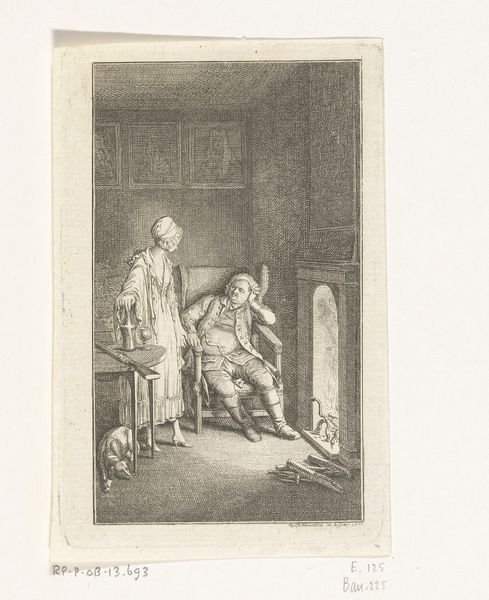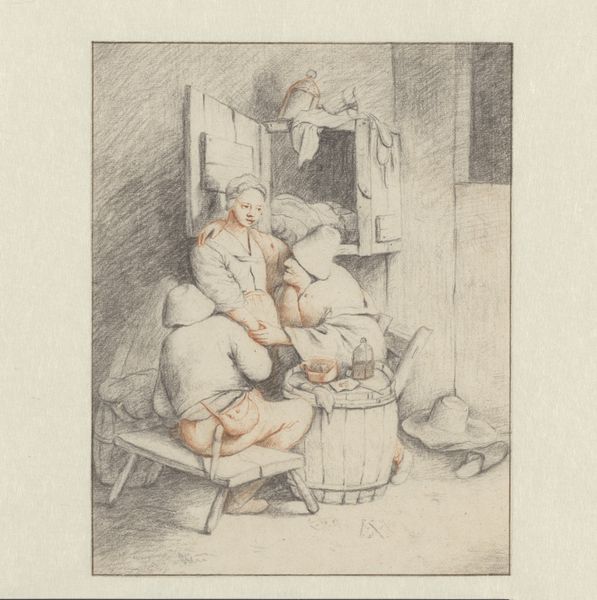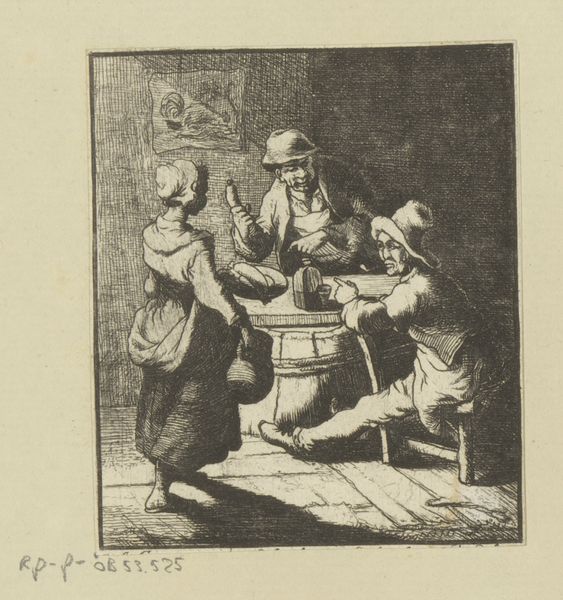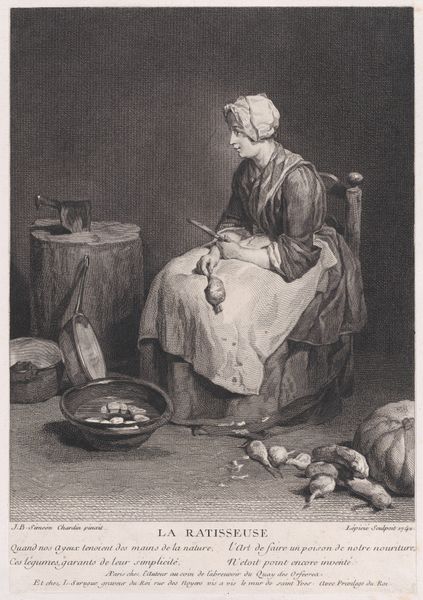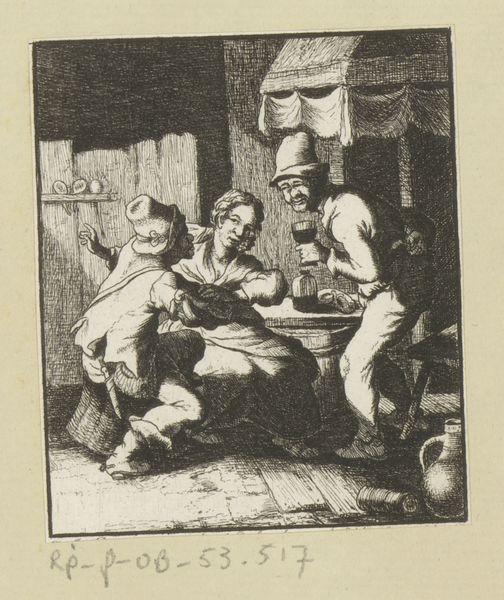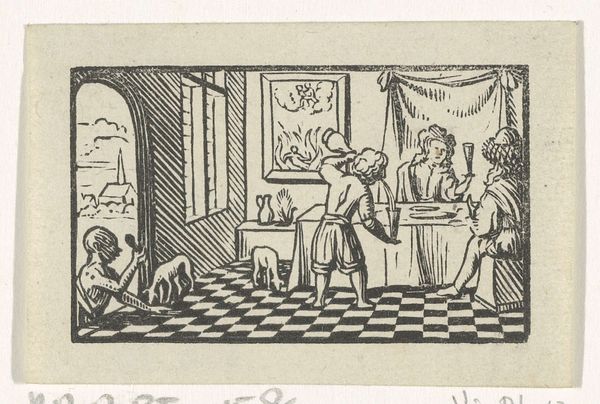
drawing, print, pen, engraving
#
drawing
#
narrative-art
# print
#
caricature
#
figuration
#
pen
#
genre-painting
#
engraving
#
realism
Dimensions: height 218 mm, width 281 mm
Copyright: Rijks Museum: Open Domain
Alfred de Dreux created this drawing of a woman filling a can with water with pen in grey-brown ink. It's a domestic scene that offers a glimpse into the daily life of 19th-century France, but it also prompts us to consider the social conditions that shaped such representations. De Dreux was primarily a painter of horses and portraits of the wealthy elite. Here he turns his attention to the working class. The woman, humbly dressed and absorbed in her task, embodies the kind of labor often rendered invisible in mainstream art. Consider the composition: the objects arranged around her – buckets, barrels, a broom – speak to the material realities of her existence. The open doorway reveals other figures, hinting at a larger community of workers. To understand this image better, we might explore the economic structures of 19th-century France and we can also analyze visual codes used at the time, asking ourselves, what does it mean to represent the working class in this way? Ultimately, this drawing reminds us that art is never neutral; it always reflects and shapes our understanding of the world around us.
Comments
No comments
Be the first to comment and join the conversation on the ultimate creative platform.
